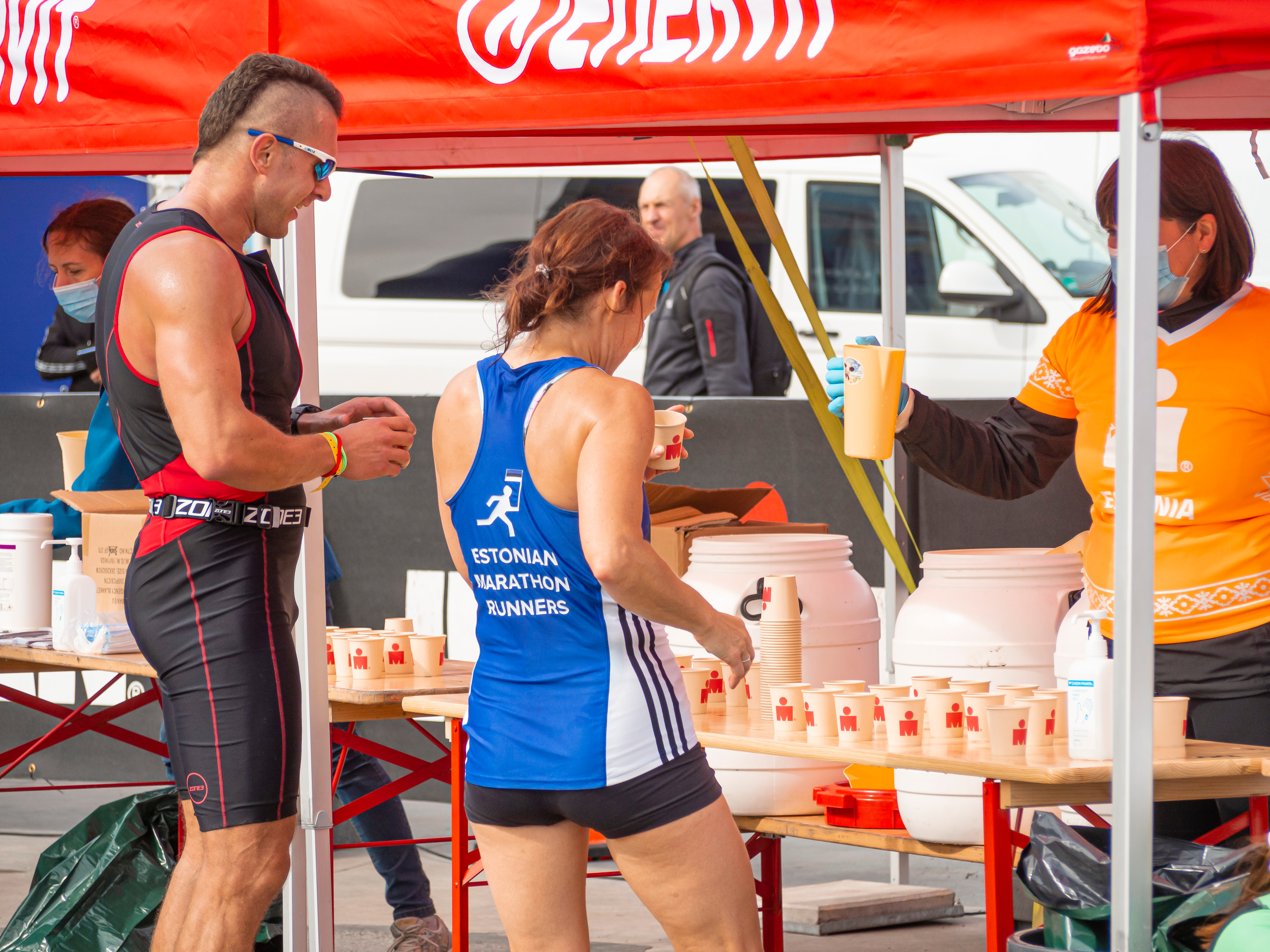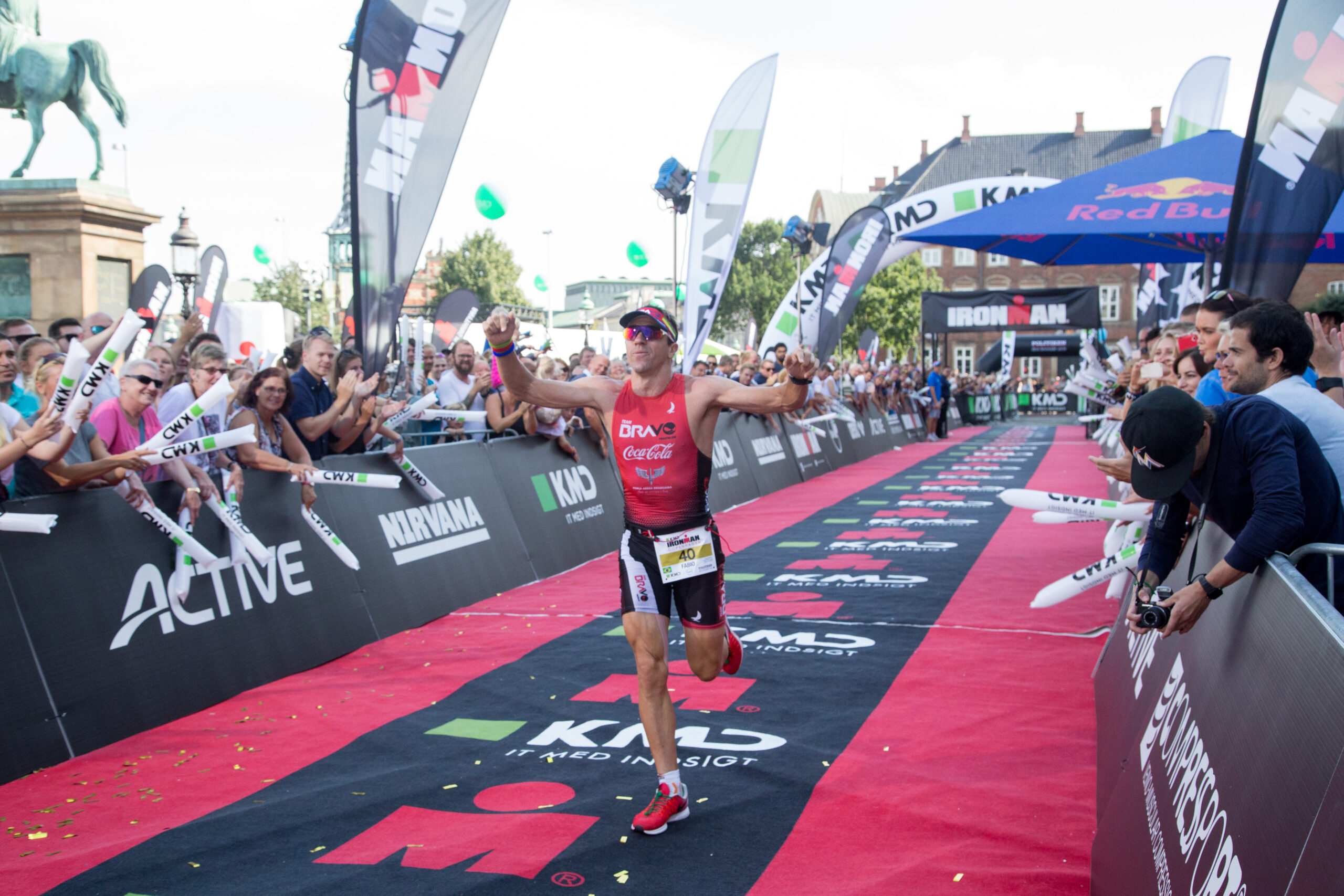Ironman races have become some of the most popular and well attended endurance events in recent years. This does not come as a surprise, as the challenge is immense for both amateurs and professionals. Just because you have completed one does not mean you will cruise through the next. Every race is its own challenge. The events are extremely well run and the atmosphere is second to none.
While an Ironman might seem daunting to most, the event is perfectly organized for the beginner. Registration, transition, race start and race finish are all very well organized and structured. For someone a bit nervous or new to it all, there are a lot of friendly faces there to make the experience as enjoyable as possible. In addition, there’s usually a fantastic goodie bag and that all-important finishers medal.
While the reasons to complete an Ironman vary for many the task remains the same. You will need to complete three disciplines over long distance, and the endurance demands to complete the event are substantial. Whether you are racing to win or simply surviving the distance, your race strategy and approach will be much the same. Pacing and management of your ability will be key for success in both instances.
In order to complete and compete in your first Ironman here are some of our proven tips. This approach has allowed us to deliver multiple Age Group Medals and world championship qualifying times.
- Do the work
Training for an Ironman requires a significant volume of work. Simply training hard a few times in the weeks leading up is a risky approach. You cannot cram for an Ironman. The duration of the event puts the body under a specific type of stress. Your ability to endure muscle breakdown and impact will dictate how well you cover the distance. This resilience must be built with a sustained and progressive volume of training. This must start months in advance. For those with a reasonable training background they may not need as much specific training, but starting your training only a few weeks beforehand will be a recipe for disaster.
- Smooth not fast
Many of those entering an Ironman will have completed in some shorter events like sprint distance triathlons. While the sport is the same, there are significant differences. Sprint races are fast and some individuals can do quite well relying on speed rather than any major endurance capacity. The race is over quickly so pacing and nutrition are rarely taxed to the same extent. Ironman races require an even and controlled application of effort. High intensity bursts must be used sparingly and a much more conservative and smooth application of effort generally pays off. Attacking each hill or sprinting off the start will come at a cost towards the end of the race.
- Know your nutrition
On numerous occasions we get asked “What should I eat on race day” the day before an Ironman. It is far too late to work this out the day before. So many ironman attempts fail on nutrition strategy alone. One bottle and a snickers bar might be ok for a Saturday cycle but the amount of energy burned during an Ironman is huge. You will need to eat a lot. In addition you will need to eat even when working quite intensely. This can be hard on your gut and many feel quite sick when trying to consume calories while on the move. You absolutely need to practice eating regularly while training. You need to know what you can eat and tolerate when your body is under stress. The foods you end up with might not be what you’d expect, but if they work, they work.

- Treat the event with respect
There’s a fine line between being careless and too nervous. An Ironman is a huge challenge and brings with it many obstacles which must be dealt with. While overthinking the race can be a disaster, not paying attention to obvious issues is just as risky. A logical approach using common sense can go a long way. Often the excitement and buzz around an event can result in many obvious issues going unnoticed. Pay respect to the task and don’t take chances; this is one of the best pieces of advice we would give in ensuring you complete your first Ironman event.
Training for an Ironman can be quite daunting and overwhelming. A good coach will help you navigate the challenges. The event is expensive but the build up is as much a part of the experience as the big day itself. Commit to it, but enjoy it. Try to avoid getting excited about results etc., your first time. Concentrate on the process and executing the plan you have put together long in advance of race day. This is how you will complete your first Ironman successfully.
If you enjoyed that article then take a few moments to check out some of our other great content.
We suggest starting our Ironman training programme no later than November to be ready for next season’s IM events. Contact us to enquire!
